
On the 6th November 2018, Dr Neil Maxwell on behalf of the University of Brighton signed a Memorandum of Understanding (MoU) with the English Institute of Sport (EIS) to signify a statement of intent to collaborate. This MoU reflects the on-going support the Environmental Extremes Lab Team are providing the EIS and associated national teams as they prepare for the heat of Tokyo at the 2020 Olympics and Paralympics.
One specific example of this collaboration that translates to our students, links to eight research projects around the themes of acute and chronic heat alleviation that have been identified by the EIS as priority for improving chances of securing medals in 2020. We have nineteen of our 3rd year BSc (Hons) Sport and Exercise Science Dissertation Students spread over these eight projects, offering a great opportunity to make a difference while tackling real challenges and helping their future employability. The students will all be presenting their findings to EIS practitioners at Bisham Abbey in March and we wish them well as they move from the conception and development stage of their studies to main experimental testing in the New Year. We expect our Welkin Labs will be very busy over the next few months!
Project Team 1: Raul Campoy, Ben Fawley, Tom Jansons
Project Team 2: Luke Roiw, Harry Cook
Project Team 3: James Sinfield, Jack Blenkarn, Dan Littler
Project Team 4: James Corrall, Dan Burford
Project Team 5: Frank Lamdin, Josh Hill
Project Team 6: Iona O’Shea, Charlotte Hardy
Project Team 7: Chris Barker, Kukena Kaindama, Amelia Monkcom
Project Team 8: Ellie Hogg, Sami Huseyin
As part of the on-going support we have been providing the EIS, Dr Mark Hayes and Dr Ash Willmott delivered a presentation to the GB Hockey Team in October 2018 about Pre and Per (During Exercise) Cooling Strategies to optimise performance in Tokyo 2020. This led to discussions with support staff from the England Rugby Team who were attending the meeting about their heat strategy ahead of the 2019 Rugby World Cup in Tokyo. Mark and other members of the Environmental Extremes Lab Team (Drs Oli Gibson, Ash Willmott and Neil Maxwell) have now been reviewing and advising on the finer details of the England Team’s preparations.
With the challenges facing higher education at present and the increased competition from apprenticeships and other career routes, it could be easy to question the value that university degrees may offer our current students. However, arrangements with external partners like the one we have with the EIS, offer students the blend of science and practice, where they get the chance to develop the harder scientific and softer communication skills together. The students across the eight project teams have certainly encountered a good number of hurdles in the last few months. Dr Emma Ross (Co-Head of Physiology for the EIS) came down to meet with our students and help them contextualise the problems athletes, coaches and practitioners face at an elite level. This exposure to what is essentially a form of problem-based learning is exactly what the students need to develop into the applied sport and exercise scientists of tomorrow, who can make a real difference across sport, health and occupational domains.







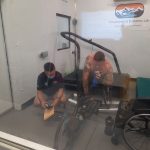


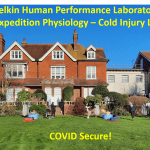








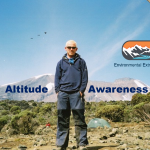
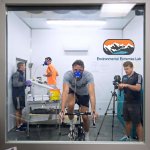

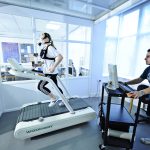






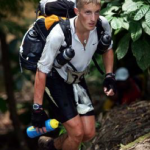


December 20, 2018 at 12:40 pm
Great work by all University of Brighton teams involved @ Para-Monte